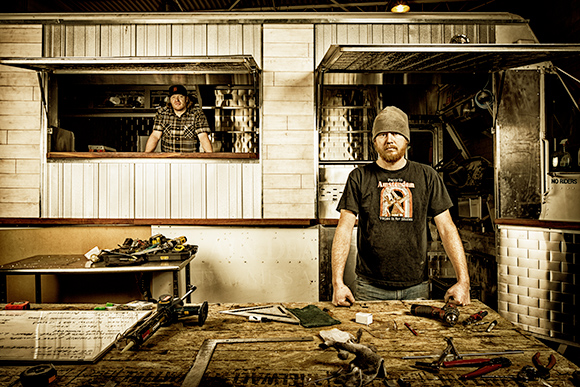DETROIT, MI – After seven years in the food-truck business, Dan Gearig says the popular wheeled eateries are anything but a fad.
“We figure the industry isn’t going away,” Gearig says. “It’s just getting bigger. We see it being a sustainable business.”
Gearig and his wife Lindsey own StrEAT Detroit, which operates the Mac Shack and El Guapo food trucks. The Gearigs have recently expanded StrEAT’s scope with a new business called Red Beard Customs, which fabricates new trucks from scratch for clients looking to capitalize on the street-eats market. Gearig says that, given the limited availability of food trucks nationwide, it’s time Detroit got in on the unique niche of building them.
“Right now the only places to get food trucks are Los Angeles, and some in Miami, Texas, and New York,” he says. “It didn’t make sense to us to be spending more money out of Detroit when we have the best manufacturers and the best machinery.”
Gearig says it can be tempting for new food cart owners to rush into things, installing their own kitchen equipment on an old truck or van, when they’d be better off making an investment in their future with a higher-quality vehicle built for their needs. And his aim is to offer that kind of product, at a lower price than many out-of-state fabricators.
“Just because you put a futon in a van, that doesn’t make it a limo,” he says. “And a lot of the food trucks out there are like that. I’ve worked on some of the nicest trucks that are produced on the West Coast, and I’ve also worked on some really shitty ones. That’s why I want to build one that costs 25% less but has the same quality
Red Beard’s first custom-designed truck, a mobile version of Eastern Market regular Corridor Sausage Co., will hit the streets this spring. Gearig began designing the truck to the charcuterie’s specifications in October, with the assistance of mechanical engineer Brian Struebing. Working from a computer-generated draft, the two outfitted a basic box truck with specialized plumbing, electrical fixtures and other modifications.
“I know these things inside and out, and I’m also a chef,” Gearig says. “I’m able to bridge the gap between engineers and chefs to make trucks that are not only functional, but the whole layout is built with the chef in mind.”
But even this veteran of Detroit’s youthful food-truck industry found some surprises in the innovative ideas his clients brought to the table. Corridor Sausage partner Gjon Camaj suggested the idea of lowering the truck’s serving platform so it would be more at customers’ eye levels, eliminating the craned neck necessary to interact with staff on most trucks.
Find the entire article by Patrick Dunn at metromodemedia.com <here>




